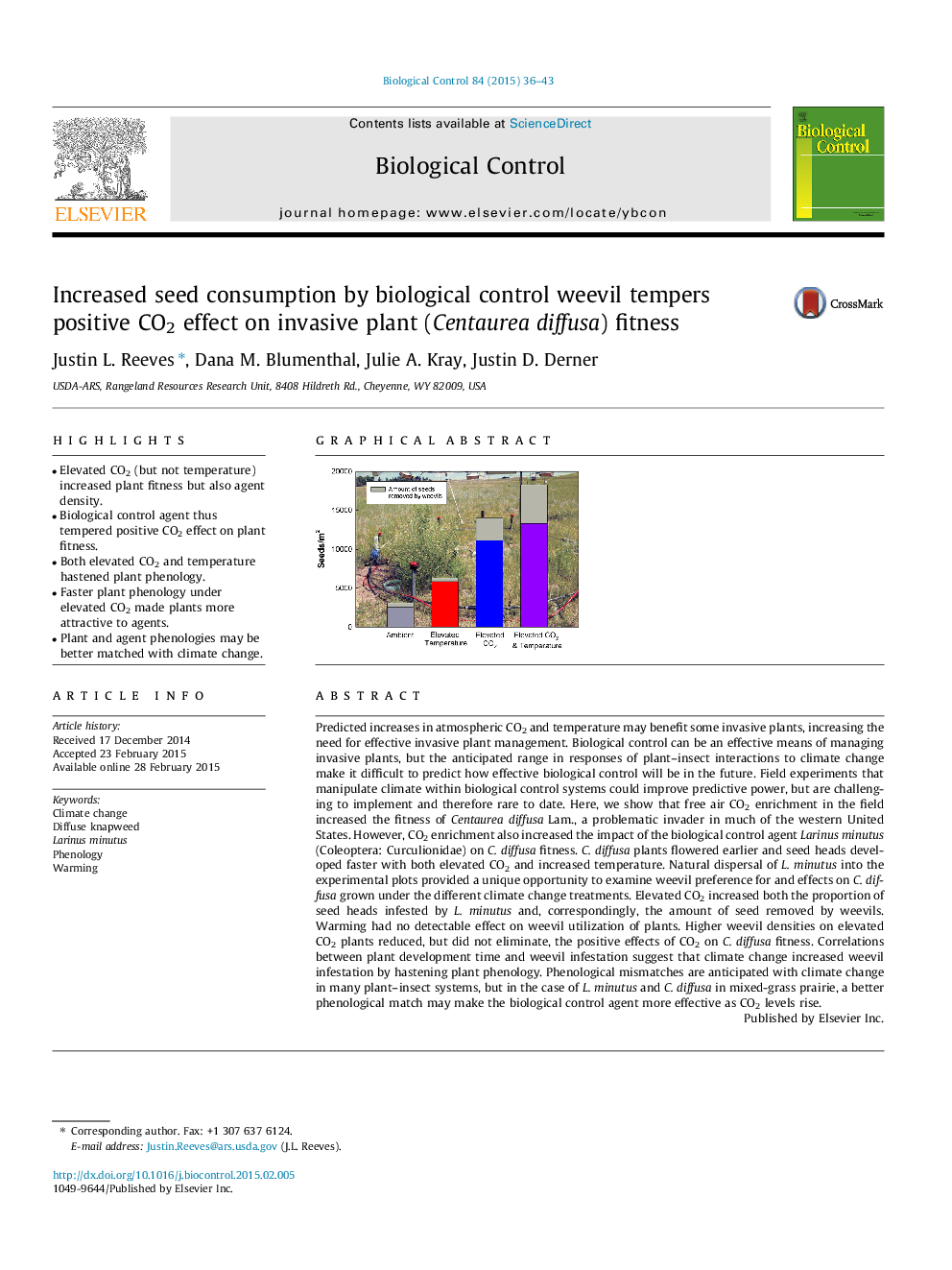| کد مقاله | کد نشریه | سال انتشار | مقاله انگلیسی | نسخه تمام متن |
|---|---|---|---|---|
| 4503794 | 1624250 | 2015 | 8 صفحه PDF | دانلود رایگان |

• Elevated CO2 (but not temperature) increased plant fitness but also agent density.
• Biological control agent thus tempered positive CO2 effect on plant fitness.
• Both elevated CO2 and temperature hastened plant phenology.
• Faster plant phenology under elevated CO2 made plants more attractive to agents.
• Plant and agent phenologies may be better matched with climate change.
Predicted increases in atmospheric CO2 and temperature may benefit some invasive plants, increasing the need for effective invasive plant management. Biological control can be an effective means of managing invasive plants, but the anticipated range in responses of plant–insect interactions to climate change make it difficult to predict how effective biological control will be in the future. Field experiments that manipulate climate within biological control systems could improve predictive power, but are challenging to implement and therefore rare to date. Here, we show that free air CO2 enrichment in the field increased the fitness of Centaurea diffusa Lam., a problematic invader in much of the western United States. However, CO2 enrichment also increased the impact of the biological control agent Larinus minutus (Coleoptera: Curculionidae) on C. diffusa fitness. C. diffusa plants flowered earlier and seed heads developed faster with both elevated CO2 and increased temperature. Natural dispersal of L. minutus into the experimental plots provided a unique opportunity to examine weevil preference for and effects on C. diffusa grown under the different climate change treatments. Elevated CO2 increased both the proportion of seed heads infested by L. minutus and, correspondingly, the amount of seed removed by weevils. Warming had no detectable effect on weevil utilization of plants. Higher weevil densities on elevated CO2 plants reduced, but did not eliminate, the positive effects of CO2 on C. diffusa fitness. Correlations between plant development time and weevil infestation suggest that climate change increased weevil infestation by hastening plant phenology. Phenological mismatches are anticipated with climate change in many plant–insect systems, but in the case of L. minutus and C. diffusa in mixed-grass prairie, a better phenological match may make the biological control agent more effective as CO2 levels rise.
Figure optionsDownload as PowerPoint slide
Journal: Biological Control - Volume 84, May 2015, Pages 36–43